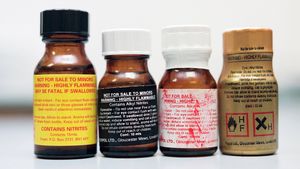Sen. Barack Obama
captured most of the delegates in Wisconsin and Hawaii
Tuesday, increasing his lead in the race for the Democratic
nomination for president.
Sen. John McCain,
meanwhile, moved closer to clinching the Republican
nomination.
Obama won at
least 55 delegates in the two states, with six still to be
awarded. Sen. Hillary Rodham Clinton won at least 33.
In the overall
race for the nomination, Obama led with 1,336 delegates,
including separately chosen party and elected officials
known as superdelegates. Clinton had 1,251.
Obama has built
the lead by winning 10 straight contests since the 22
Democratic contests on February 5, Super Tuesday. Among
pledged delegates won in primaries and caucuses, Obama
had a 155-delegate edge. Clinton has kept the overall
race closer with more endorsements from superdelegates,
who can support whomever they choose at the convention,
regardless of what happens in the primaries.
It takes 2,025
delegates to secure the Democratic nomination at the
party's convention in August.
On the Republican
side, McCain won at least 34 delegates in Wisconsin and
Washington State, with 22 delegates still to be awarded.
Races in two Wisconsin congressional districts were
too close to call Wednesday morning, and complete
results in Washington could take several days.
Overall, McCain
had 942 delegates and former Arkansas governor Mike
Huckabee had 245. It takes 1,191 delegates to claim the
Republican nomination at their national convention in
September.
With Tuesday's
results, Huckabee needs help from Mitt Romney's former
delegates just to remain a viable candidate. Romney has
withdrawn from the race and endorsed McCain. But the
former Massachusetts governor has little authority
over his 253 delegates, most of whom will be free agents
at the convention.
The Associated
Press tracks the delegate races by calculating the number
of national convention delegates won by candidates in each
presidential primary or caucus, based on state and
national party rules, and by interviewing unpledged
delegates to obtain their preferences.
Most primaries
and some caucuses are binding, meaning delegates won by
the candidates are pledged to support that candidate at the
national conventions.
Political parties
in some states, however, use multistep procedures to
award national delegates. Typically, such states use local
caucuses to elect delegates to state or congressional
district conventions, where national delegates are
selected. In these states the AP uses the results from
local caucuses to calculate the number of national delegates
each candidate will win, if the candidate's level of
support at the caucus does not change. (Stephen
Ohlemacher, AP)



















































































